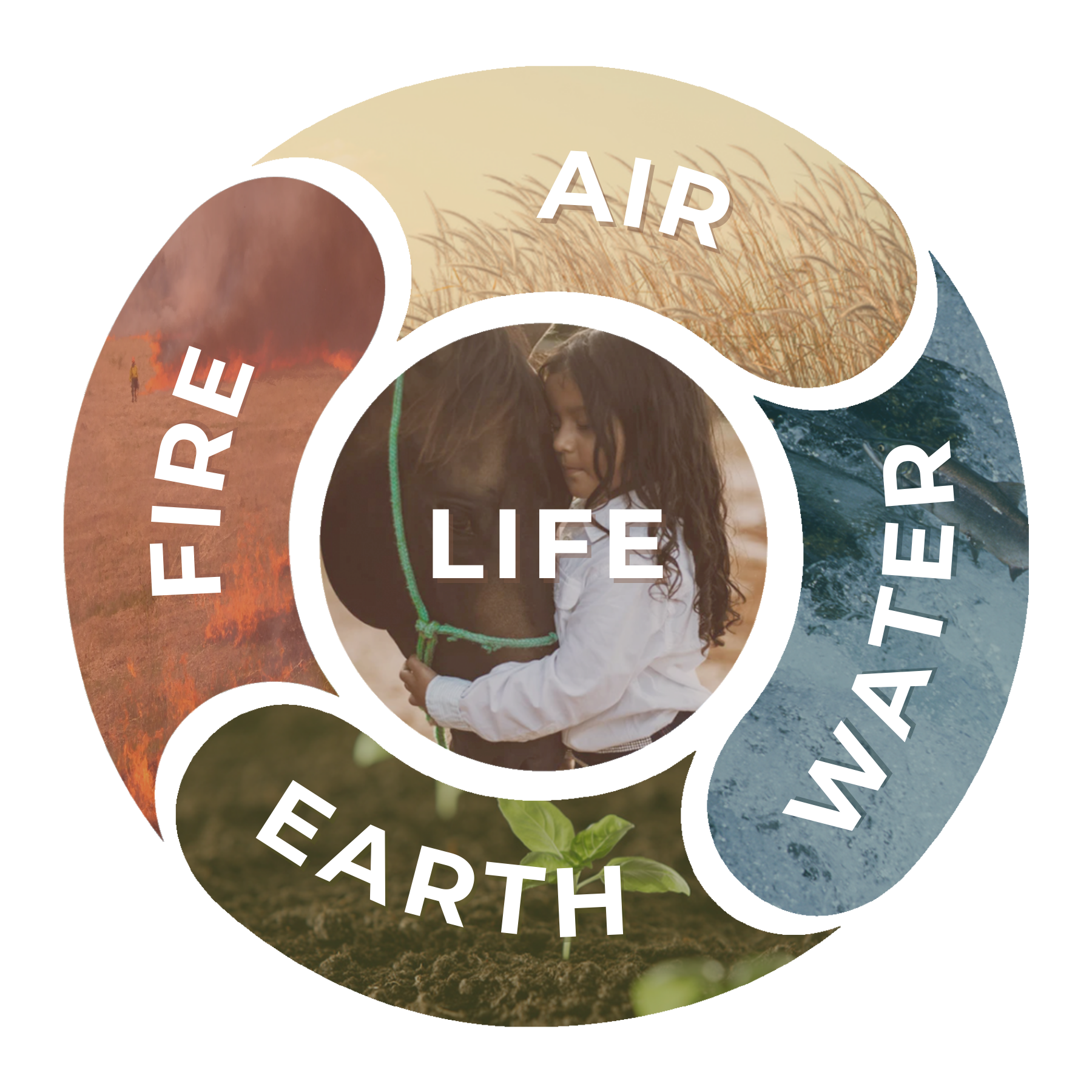Climate Data Portal for US Native Lands
A toolkit to support sovereign climate planning on Native Lands
This Climate Data Portal is thoughtfully designed to align with the non-linear, holistic approach tribes take when addressing climate adaptation. Drawing inspiration from the teachings of indigenous world views, which emphasize that the five basic needs of life—food, fire, water, shelter, and earth—are essential for all species to thrive, we’ve applied this wisdom as an analogy for climate stewardship. Just as these needs are critical for human well-being, the climate must be treated with care and attention to ensure the health and resilience of all beings.
This portal is organized into five thematic categories—Air, Earth, Fire, Water, and Life. These themes represent the essential resources that sustain life and communal well-being, and they guide our organization of data in a way that mirrors the interconnected and interdependent nature of climate systems.
The portal allows users to explore data through these interconnected themes, acknowledging that climate adaptation is a complex and multifaceted challenge. For instance, a dashboard under ‘Fire’ might also be found under ‘Life,’ reflecting the complex and interwoven realities of climate adaptation. This thematic structure supports a non-linear exploration of information, enabling tribes to find the data that resonates most with their unique perspectives and needs.



Explore the Data Portal using this interactive menu.
Together, we can build a more resilient future for our lands and communities.
Need assistance? Watch a video tutorial & learn more about the Portal by clicking the button above.
Our Climate Data Portal is not just a repository of information; it is a living resource that evolves with the needs of tribes. Guided by feedback from our Tribal Climate Advisory Panel and the latest climate research, we aim to continually expand and update the Portal’s data offerings. By providing tools and resources that are flexible and adaptable, we support tribal communities in developing strategies as dynamic and interwoven as the natural world itself.
Disclaimer
It is important to note that all the data compiled into our dashboards are sourced from publicly available federal datasets. NLAP’s role is to make this information more accessible for Native Nations to support their land and resource planning. We are committed to honoring Native land caretakers by not publishing or amplifying any sensitive data. If you have any questions or concerns about this, please do not hesitate to contact us.
